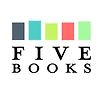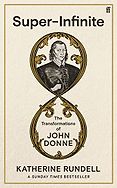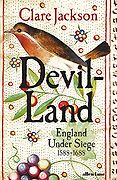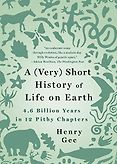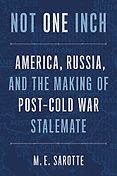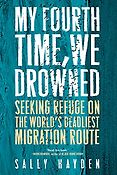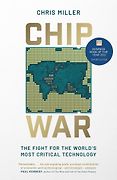There are lots of book awards around, but they have a few things in common: they evaluate dozens (in some cases hundreds) of books and they are chosen by a panel of judges. That means they’re broader than a list composed by an individual, with their own interests and biases. It also means that many more books are evaluated than any one individual will come across in any one reading year, even someone like me, who reads constantly. Of course, it is by no means a scientific exercise, tastes and trends still play a huge role, but at least there is an attempt at objectivity. In this list, I’ve gathered together some of the books that have won nonfiction prizes in 2022, prizes that choose books thoughtfully and whose winners are worth taking seriously, even when they’re not on a topic you might normally read about:
General Nonfiction Prizes
Here in the UK, it was a biography of the early modern English poet, John Donne (1572-1631) that won the country’s prestigious nonfiction prize, the Baillie Gifford Prize (known as the Samuel Johnson Prize until 2015). Donne’s meditations on the meaning of life and death speak to us across the centuries, in poems like “Death Be Not Proud” and passages that remind us that “No Man is An Island,/Entire of itself…Send not to know/For whom the bell tolls,/It tolls for thee.” In Super-Infinite: The Transformations of John Donne, Katherine Rundell, a children’s author who is also a Renaissance literature specialist, conveys not only the ups and downs of Donne’s life, but her passion for his poetry.
Other prizewinning books in the general nonfiction category include South to America by Imani Perry, which won the National Book Award for nonfiction. Perry is a professor of African American Studies at Princeton and it’s a reflective book about a trip to the southern United States, starting in the historically significant town of Harpers Ferry. Invisible Child by Andrea Elliott, tracing the life of a homeless girl in New York City over many years, won the Pulitzer Prize for Nonfiction. It’s hard to believe, but amidst New York’s enormous wealth, there are 22,000 homeless children.
History Book Prizes
The UK’s most important history book prize is the Wolfson History Prize. Books are selected for their readability, but the books shortlisted represent serious—rather than popular—history. This year’s winner was Devil-Land: England Under Siege, 1588-1688 by Cambridge historian Clare Jackson, who presents this era as a time when England was something of a failed state.
All That She Carried: The Journey of Ashley’s Sack, a Black Family’s Keepsake by Harvard historian Tiya Miles won the Cundill History Prize, which often brings to light very interesting, international books (previous winners include Blood on the River, about a 1763 slave revolt in Guyana and Fifth Sun, about the Aztecs). The Cundill History Prize is run by McGill University and any history book in English—or translated into English—is eligible. All That She Carried is the story of three generations of women, told using the very little evidence that remains of their lives: a bag with a beautiful inscription sewed into it.
In the US the Pulitzer Prize for History went to two books. One is Cuba: An American History by Ada Ferrer, which covers 500 years of history, from just before the arrival of Christopher Columbus to the death of Fidel Castro in 2016. The book opens with Ferrer’s own departure from Cuba to New York as a baby. The other book is Covered with Night: A Story of Murder and Indigenous Justice in Early America by Nicole Eustace and focuses on a single year, 1722. The Pulitzer jury describes it as “A gripping account of Indigenous justice in early America, and how the aftermath of a settler’s murder of a Native American man led to the oldest continuously recognized treaty in the United States.” Both authors are history professors at NYU.
Science Book Prizes
Back in early modern England, scientists (called ‘natural philosophers’ at the time), set up a Royal Society to discuss their work. Their first meeting took place on 28 November 1660. Not only is the Royal Society still going today as an “independent scientific academy….dedicated to promoting excellence in science for the benefit of humanity” they also have a book prize that picks out popular science books for the general public. This year’s winner was A (Very) Short History of Life on Earth, a book that covers 4.6 billion years in 12 relatively short chapters. It’s by Henry Gee, an editor at Nature.
The Royal Society also has a kids’ science book prize which is excellent. A panel of scientists draw up the shortlist, but it’s children who vote the winner from the final six. This year’s winner will be announced in March 2023; last year’s winner was I am a book. I am a portal to the Universe by Stefanie Posavec and illustrated by Miriam Quick.
Russia Book Prize
I like prizes that are quite specific, and I was delighted a few years ago to discover the Pushkin House Book Prize. The prize goes to the year’s best nonfiction book about Russia. This year’s winner was Not One Inch: America, Russia, and the Making of Post-Cold War Stalemate by Mary Elise Sarotte, a professor at Johns Hopkins. It looks at the missed opportunities of the 1990s—in the hopeful years after the fall of Soviet communism—for rapprochement between the US and Russia. These two countries still possess more than 90% of the world’s nuclear warheads, so it’s a history worth understanding.
Politics & Current Affairs
My Fourth Time, We Drowned by Irish journalist Sally Hayden was a clear winner this year in the politics category. It’s about the awful things going on in the migration route from North Africa to Europe, and what a bad job the EU and international organizations are doing in protecting very vulnerable people. The tragic situation in the Sahara desert and the Mediterranean is truly horrifying, and although there is no easy solution, this is a major failing of our age. The book won both the Orwell Prize for Political Writing, as well as the British Academy Book Prize, which focuses on books that enhance ‘global cultural understanding.’
The World Economy
Another prize that is well worth keeping an eye on is the Financial Times book prize. In principle, it’s a business book prize, but in practice, it covers any book that might be relevant to business or economics. This prize is a good way of getting acquainted with issues that are often really important for the functioning of the world economy and hence our everyday lives, written in a way that’s accessible to the general reader. This year’s winner was Chip War: The Fight for the World’s Most Critical Technology by Chris Miller, a professor at the Fletcher School at Tufts University. Last year’s winner was This Is How They Tell Me the World Ends: The Cyberweapons Arms Race by Nicole Perlroth, which highlighted another issue we all need to be aware of, but many of us choose to ignore.
Five Books aims to keep its book recommendations and interviews up to date. If you are the interviewee and would like to update your choice of books (or even just what you say about them) please email us at [email protected]
Five Books interviews are expensive to produce. If you've enjoyed this interview, please support us by donating a small amount.

